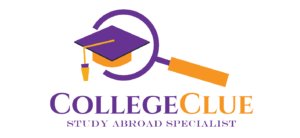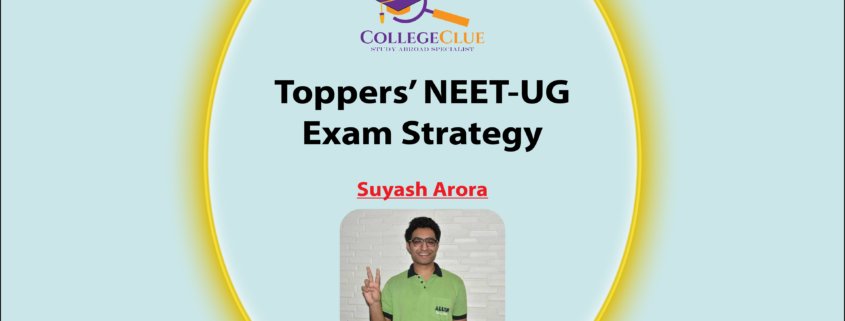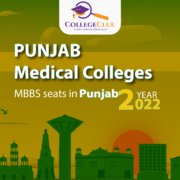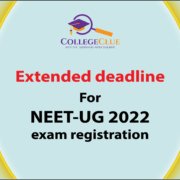This is another post from our NEET topper’s Strategy series in which we will cover the strategies and approaches of Suyash Arora. He is a NEET topper and achieved 5th rank with 715/720 marks.
Let’s dive deep into the ocean of knowledge!
Syllabus and Exam pattern
Many of the students would already be aware of the NEET exam pattern and syllabus. The exam pattern is divided into 4 parts and each subject has 2 sections A & B. In section A (Compulsory section), there are a total of 35 questions. Whereas in section B, there are only 15 questions in which a candidate has to solve only 10.
| Subjects | Part A (Compulsory section) | Part B (10/15 are compulsory) |
| Physics | 35 Questions | 15 Questions |
| Chemistry | 35 Questions | 15 Questions |
| Botany | 35 Questions | 15 Questions |
| Zoology | 35 Questions | 15 Questions |
Note: The entire syllabus of NEET UG exam is NCERT based or NCERT derived. Some topics in physics and Physical chemistry are required to be referred from other sources.
Part wise preparation strategy
Physics
It is not a memory-intensive subject, so students need to understand the core concepts to make it strong. Because every year, new questions are asked in this section and if our concepts are strong we will be able to score more in the exam.
First of all, we should focus on our self-prepared notes and HC Verma’s book, because we prepare our notes with full details which are required from the exam point of view and HC Verma is very organized as per the NEET syllabus. After finishing these two, we should move toward NCERT books.
While referring to NCERT books, pay special attention to the highlighted points in gray & blue boxes that are separately mentioned after the topics with their advanced information.
Don’t forget to escape the “points to ponder” section because most of the students make mistakes here to avoid it. This section includes the advanced level information which must be taken seriously while preparing for the NEET exam.
Now come to the subjective question practice to build and develop concepts. Students generally avoid these theory-based questions but it is highly recommended for all NEET aspirants.
Books recommended for subjective question paper HC Verma and NCERT books. Both have a good level of subjective questions, first, try to solve them by yourself then ask your teachers or friends.
For objective questions, we have abundant resources so students should choose wisely which questions are needed to solve or not. For objective questions, students can refer to books like DC Pandey, BM Sharma and modules of any coaching institute which you have joined for your NEET preparation. If not then there are also various resources and books that will help you to revise your NEET syllabus, formula and concepts.
Physics is the subject that can reduce your time in the main exam, if your concepts are strong then you can score maximum marks in this subject in very less time and that saved time can be utilized in other sections.
To make this subject strong, you can give 1.5 to 2 hours every day to this subject.
Chemistry
Chemistry is scary for most of NEET aspirants, so this subject needs to be handled very carefully. It is known to all the students that physical chemistry and physics are very similar to each other but the theory section given in both the subjects is unorganized.
So don’t jump into the NCERT books directly, study with your self prepared notes first then go for NCERT theories. Don’t avoid the back exercises given in the NCERT chemistry books because a lot of questions are asked from this section.
Another similarity between physics and physical chemistry is that the initial chapters are crucial for the further chapters. Basically, the concepts you build in the initial chapters are used in the other upcoming chapters. So 3 or 4 chapters given in the beginning need to be studied very consciously.
Inorganic
There is a stereotype perception about inorganic chemistry that is memory intensive but in reality, several chapters are there in organic chemistry which are concepts based such as the periodic table, coordination chemistry and even to some extent to metallurgy.
But there are some chapters that you have to mug up those topics such as blocks, SPDF etc. What you can do to prepare it is make your notes, memorize them with some short trick, and write it on sticky notes and put it in front of your study table.
To practice objective type questions in inorganic chemistry, you can refer to VK Jaiswal’s book. In that book, you can go through the topics like chemical bonding, periodic table and other logical topics. But for blocks, don’t go beyond NCERT because the NEET exam has become more oriented toward the NCERT syllabus.
Organic Chemistry
In organic chemistry, most of the things are needed to mug up so it is not necessary to waste time and energy in understanding 10-page long derivations. While preparing for NEET 2022 exam, it is important to know what are the things that you need to avoid. Because some things were asked in the AIIMS exam but after the introduction of the NEET exam as a sole entrance exam to enter into a medical sphere, those things have not been asked in the exam.
According to the recent trends in the NEET exam, only reactions are asked, not the mechanism, so it can be avoided directly and the reaction can be learned by hook and crook.
Biomolecules, Chemistry in everyday life and Polymers — these are the chapters taught in the last days of the exam so students usually take these chapters very lightly. But recent exam patterns show that direct lines from NCERT books are being asked in the exam.
Biology
For this section, only NCERT books are sufficient. You may get tired of hearing that NCERT books are an important source to study for NEET preparation. There are two books that are very relevant and to the point to the NEET exam, one is NCERT at your fingertips by MTG and the second one is master the NCERT by Arihant publication. These two books are sufficient and there is no need to pick any other books for biology preparation. Apart from this, previous year’s question papers are very important, don’t avoid solving last year’s question papers.
Paper attempting strategy
We have heard this many times that NEET aspirants should attempt the biology section first but it is not valid for all the students. Students can practice with their own strategy and attempt the exam in that way.
NEET exam 2021 topper Suyash Arora suggests that candidates should start with their strongest section in the exam. Whether it is chemistry, Biology or Physics, start with the subject in which you are comfortable the most and in the same way you are preparing with the mock test.
It is also suggested that while attempting a mock test, keep 15 minutes in your spare. It is important because you may get nervous and anxious in the main exam. Hence practicing in this way makes you feel relaxed during the exam.
Key Takeaways
Always attempt a mock test at the same time as your main NEET exam, it will make you more productive and attentive at that particular time.
Start practicing the entire syllabus mock test 3 months after the exam.
Regularly analyze the mock test and try to improve in your weak areas.
Always make your own short notes which will help you at the time of revision.
Prepare a doubt list and try to solve all your doubts before the exam with the help of teachers, friends and seniors.
Last but not the least, revise as many times as possible.














Leave a Reply
Want to join the discussion?Feel free to contribute!